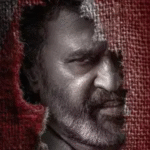The announcement of the National Film Awards always stirs debates, but this year, the decision to honour The Kerala Story has sparked a full-blown political storm. Prominent leaders from both the Indian National Congress and the Communist Party of India (Marxist) have come out strongly against the decision to grant the film a National Award, calling it a politically motivated move that legitimizes a controversial narrative.
The Kerala Story, directed by Sudipto Sen and produced by Vipul Amrutlal Shah, has been the subject of intense debate since its release in 2023. The film portrays a group of Hindu and Christian women allegedly converted and trafficked to join ISIS. While its makers claimed it was based on true events, critics from across the political and civil spectrum labelled it as Islamophobic and a propaganda tool aimed at vilifying the state of Kerala and its communal harmony.
A Controversial Win :The Kerala Story
When the 71st National Film Awards were announced, the selection of The Kerala Story in a key category—reportedly for “Best Film on National Integration” or “Best Popular Film Providing Wholesome Entertainment”—came as a surprise to many, given its polarising reception. Opposition leaders immediately condemned the move, saying that it undermines the very idea of national unity.
Congress Leaders React: “An Affront to Kerala’s Culture”
Congress MP Shashi Tharoor, one of the most vocal critics, called the award a “tragic commentary on the direction of Indian cinema and the misuse of state-backed recognition.” He added, “Kerala is a beacon of pluralism and religious harmony. The Kerala Story distorted facts, incited hatred, and created a false image of our state. Rewarding such a film sends the wrong message.”
Senior Congress leader Jairam Ramesh tweeted: “The National Awards are supposed to honour cinematic excellence, not political propaganda. This is a new low in the politicization of art.”
Kerala Pradesh Congress Committee (KPCC) also issued a statement asserting that the film has “nothing to do with truth or unity” and is instead “a calculated attempt to divide communities for electoral gain.”
CPI(M) Slams “Communally Charged Cinema”
The ruling CPI(M) in Kerala went a step further, calling the award “a reward for communal polarisation.” Chief Minister Pinarayi Vijayan, who had previously criticized the film during its release, said in a press statement: “This film was part of a coordinated campaign to defame Kerala. It was rejected by the people of the state. Now, awarding it at the national level is deeply troubling.”
CPI(M) politburo member Brinda Karat argued that honouring The Kerala Story violates the spirit of national integration. “A film that demonises an entire community cannot be called art, let alone be awarded. This is a dangerous precedent and a misuse of taxpayer money and national institutions,” she said.
Filmmakers Defend the Honour
On the other hand, director Sudipto Sen responded to the backlash by stating: “The Kerala Story was made to show the painful truth that mainstream media ignored. The National Award is a recognition of our courage to speak up for victims of radicalisation.”
Producer Vipul Shah also defended the film, asserting that “Truth often hurts, and real stories are uncomfortable. We stand by our film, and the award is a tribute to those whose voices were silenced.”
Wider Implications: Cinema and Politics Intersect Again
This episode brings back the recurring debate about the intersection of cinema, politics, and national identity. The Kerala Story controversy is reminiscent of earlier polarising films like The Kashmir Files, which also received state endorsement and political praise from the ruling BJP.
Many film critics and political analysts believe that such decisions could erode public trust in awards meant to honour artistic merit. Award-winning filmmaker Anjali Menon commented, “We are increasingly seeing cinema being used as a tool to promote ideology rather than as a platform for storytelling and empathy.”
The Kerala Story: A Symbol of Polarisation or Courageous Cinema?
Whether The Kerala Story is a courageous film exposing uncomfortable truths or a dangerous piece of propaganda will remain a matter of personal and political interpretation. But the outrage from Congress and CPI(M) leaders underscores the deepening divide over what constitutes art, truth, and national interest.
As debates rage on social media and news platforms, one thing is clear: the Kerala Story continues to dominate the cultural and political discourse of India. And with this National Award, the controversy has received a new chapter—one that could influence both the future of film recognition and the ideological battles in India’s narrative landscape.






